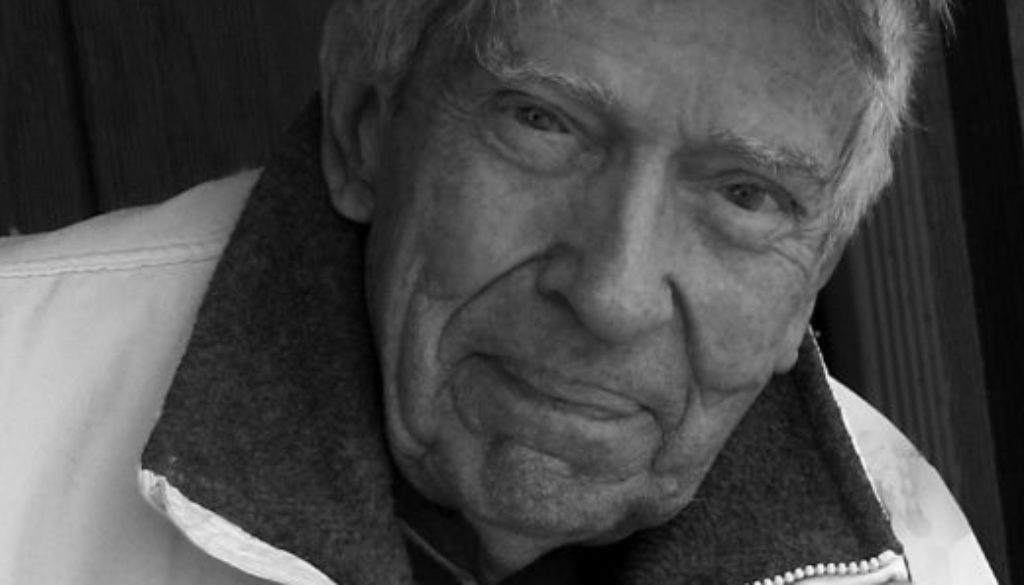Pioneering Nuclear Physicist Remembered with Graduate Study Fund
Texas A&M University graduate Dr. William A. Robba ’51 spent the bulk of his life traveling the country as part of a pioneering career in nuclear physics, yet he never forgot his educational roots. His family didn’t either, recently paying tribute to Robba, his lifetime of achievement and the university he said made it all possible by creating an endowed fund to support graduate study in physics.
Robba’s son Harte of San Pedro, Calif., said Aggieland held a special place in his father’s heart ever since he earned his master’s degree in physics from Texas A&M in 1951 and that the idea of one day giving back to the university to help students was an appealing notion. When Robba passed away March 4 at the age of 86, Harte honored his father’s memory and his final wish with the William A. Robba Endowment for Graduate Study in Physics. Funded through Robba’s estate, the endowment will benefit Texas A&M students pursuing master’s degrees and similarly rewarding futures in the Department of Physics and Astronomy.
“Our department has been undergoing a renaissance in recent years, and it has occurred in large part due to generous donations such as this gift by William A. Robba,” said Dr. Edward S. Fry, professor of physics and astronomy and head of the department. “These endowment gifts have extraordinary long-term impact, providing valuable support to students year after year. We truly appreciate the foresight of Dr. Robba and his family.”
A native New Yorker, Robba served in the U.S. Army in Norway during World War II. Afterward he had planned to return stateside and get a civilian job, but his first wife, Nancy, convinced him to capitalize on his opportunity to get a college education instead through the G.I. Bill. Robba graduated summa cum laude from Fordham College in New York in 1950 and then continued his education at Texas A&M. One year later, he left with a master’s degree in physics and a lasting bond with one particularly inspirational professor.
“My dad always talked about his physics professor, Professor Mel Eisner,” Harte said. “Evidently physics at Texas A&M was in its infancy when my dad was there, and my understanding is that my dad was Professor Eisner’s only student at one point. They became fast friends, and my mom and dad would even go on camping jaunts with Professor Eisner. They remained good friends, and he really left an impression with my dad.”
Eisner’s guidance and Robba’s passion for nuclear physics led him to an eventual specialty in high-temperature pyrolytic graphite — an important component in rocket construction at a time when the international space race was just heating up. In addition to jobs at various laboratories across the nation, Robba also held prominent positions at such high-profile companies as the Space Age Materials Corporation (SAMCO) and the Pfizer Inc. Space Age Division.
Harte said his father recognized his successful career would have been unlikely without higher education and that he always encouraged, but never forced, all of his children to go as far as they could in academics. And although initially surprised by the size of his father’s intended gift to Texas A&M, Harte said he understands his father’s perspective — that of a child who grew up in relatively meager living conditions in the Great Depression era. Harte said his father knew from all-too-personal experience what simply giving youngsters a mere chance at an education could do for them. Just as the G.I. Bill had financially supported his own education, Robba wanted to one day offer the same assistance to deserving college students so that they, too, might be able obtain their dreams as well.
“He valued the higher education route enough to want to give back to it, and I can see why it meant a lot to him,” Harte said. “My dad would be honored, and I, along with the rest of his family, am honored by the recognition from the university.”
Harte said that if his father were able to meet the first recipient of the endowment, he would have some advice for him or her: to use the award to the very best of their potential.
“I hope that the graduate student who receives this endowment might spend a moment to think about where it came from and appreciate it,” Harte added. “My dad would want them to validate it through hard work and not to waste it.”
To learn more about memorial endowments or other giving opportunities through the Texas A&M Foundation, visit http://giving.tamu.edu/.
— 30 —
Contact: Chris Jarvis, (979) 845-7246 or cjarvis@science.tamu.edu
The post Pioneering Nuclear Physicist Remembered with Graduate Study Fund appeared first on Texas A&M College of Science
